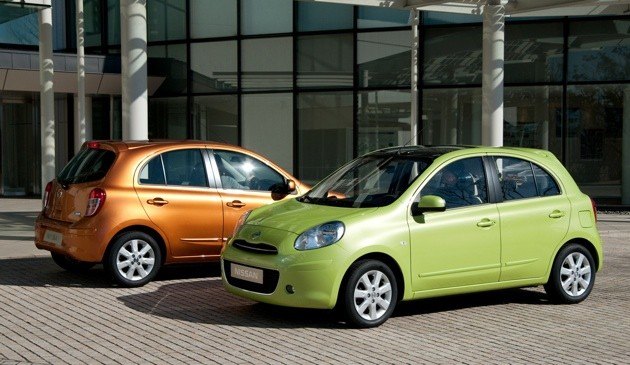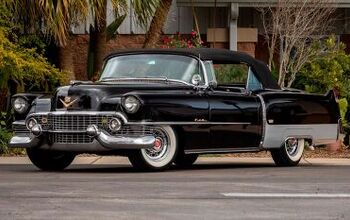Has Nissan Mastered The Impossible? Or Is Japan Just Going Cheap?

When the high Yen drove Nissan out of Japan to Thailand, and to importing their Nissan March (elsewhere known as the Micra) from the Land of Smiles back to the Land of the Rising Sun, many thought this a daring, maybe even suicidal experiment. Will the notoriously nitpicky Nipponese buyer buy it? Or will “the first move by a Japanese carmaker to export a mainstay model to the home market,” as The Nikkei [sub] called it, be a resounding dud? Either the Japanese are changing, or Nissan pulled-off the impossible.
“Worries that Japanese drivers might be turned off by cars made in Thailand proved unfounded,” reports The Nikkei [sub] now. As a matter of fact, the Thai model is better than the Japanese one. It received 20,000 orders in the first month and a half after its release, five times the monthly target. The new one gets 30 percent better mileage than the previous one. At the same time, its price is about the same as its predecessor. Value-conscious Japanese are flocking to the car.
“We use only one blueprint for the new March subcompact car, which we sell in 160 countries and regions in the world,” said a senior official of Nissan. Early next year, Nissan will start making a March/Micra hatchback in Mexico. A sedan and a MPV will follow by 2013.
But back to Japan. So what is it? Has Nissan mastered the art of making cars in low cost country that pass the scrutiny of the finicky Japanese customer? Or is deflationary Japan going downmarket, as the invasion of Tokyo’s fashion-forward Harajuku district by budget labels from H&M, Uniqlo, Topshop, Gap, Zara and Forever 21 attests? Maybe both.

Bertel Schmitt comes back to journalism after taking a 35 year break in advertising and marketing. He ran and owned advertising agencies in Duesseldorf, Germany, and New York City. Volkswagen A.G. was Bertel's most important corporate account. Schmitt's advertising and marketing career touched many corners of the industry with a special focus on automotive products and services. Since 2004, he lives in Japan and China with his wife <a href="http://www.tomokoandbertel.com"> Tomoko </a>. Bertel Schmitt is a founding board member of the <a href="http://www.offshoresuperseries.com"> Offshore Super Series </a>, an American offshore powerboat racing organization. He is co-owner of the racing team Typhoon.
More by Bertel Schmitt


































Comments
Join the conversation
Where is Booth Babe today???
Hey Ronnie you must be aware of one of the more common prejudiced stories about Jews, business (money) above all, even your mortal enemies.
Sniff. I thought the segue from one disparate topic to one related to Japanese buying non-Japan built cars was a.... sniff.... semi-creative method of tossing out one of many possibilities but.......... SOB!!!!!!!!!!!!!!!!!!!!!!!!!!!!!!!!!!!!!!!!!! NO!!!!!!!!!!!!!!!!!!!!!!!!!!!!!! Lambasted. Ridiculed. Such a lack of politically correct warm fuzziness that I am tempted to commence tossing out willy-nilly the various emotion-laden labels of BIGOT and Xenophobe and even the non-applicable but oft-used RACIST!!!!!!!!!!!!!!!!!!!!!!!!!!!!!!!! Sob. Sniff.
... and now - Back to our originally scheduled programming: Japan HAS changed. The economy has been terrible for more than a decade now. I vist every year for a couple of weeks (Mrs. Lokki has family there), and the changes are startling when seen through the stroboscope of periodic visits. Brother-in-law used to buy a new car every two years. No more. No loss of income - change in social acceptability of an older car. It used to be that cars that had been even scratched were virtually unsellable in the used car market. No more. 100 Yen ( Everything a Dollar) stores are everywhere now. Additionally, the car as status symbol seems to be fading. It used to be a very big deal to even have a car, and the cars were pampered. Constantly waxed, perpetually polished. Now they're no big deal, and most young people don't want the expense of owning one. Finally, just as in the U.S. not a lot is actually manufactured in Japan any more. Most production has moved to China or Thailand et al. Even that last bastion (as mentioned above) of only eating Japanese rice is starting to fail.